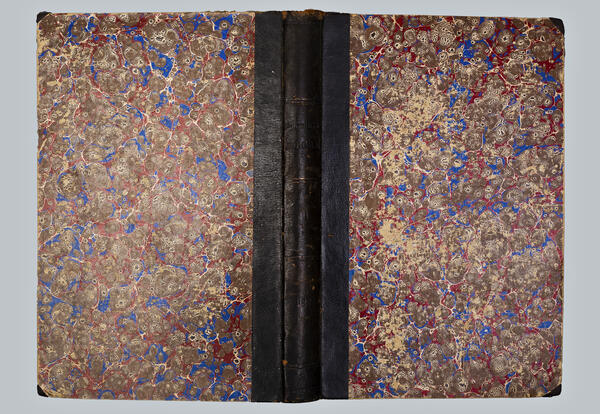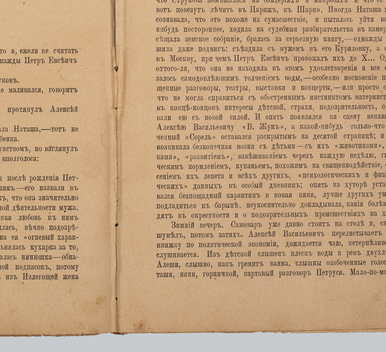In the 1880s, the Vestnik Evropy (Herald of Europe) magazine was a major periodical in Russia. Mikhail Matveyevich Stasyulevich was its editor and publisher.
Alexander Ivanovich Ertel’s early works were published in the Vestnik Evropy magazine. Initially, the writer sent the first few stories from the cycle “Notes of a Steppe-Dweller” to the Delo magazine but got rejected. Then he tried to publish the stories in the Nedelya (the week) and Russkaya Rech (Russian Speech) newspapers but did not succeed.
“Desperate”, as Ertel described himself in a letter to the publisher Vladimir Grigoryevich Chertkov, he left his manuscript at the Vestnik Evropy magazine, which was considered beyond reach for aspiring writers, and asked to pass it to the editorial staff. Contrary to Ertel’s expectations, Mikhail Stasyulevich liked his stories, and from January 1880, Ertel began to be published in this magazine.
In three years, the Vestnik Evropy published 17 stories from the cycle “Notes of a Steppe-Dweller”. Four stories — “Two Landowners”, “Lipatka the Foreigner and Gudelkin the Landowner”, “The Last Days” and “Crocodile” — appeared in the Delo magazine, and the story “Zemets” was printed in the Russkoye Bogatstvo (Russian Wealth) magazine.
In 1883, “Notes of a Steppe-Dweller” was published in a separate issue in Saint Petersburg. It also featured an introductory essay “My Acquaintance with Baturin”, which used an image of the narrator — Nikolay Vasilyevich Baturin — to unify the stories of the entire cycle. This last lifetime edition of “Notes”, however, was different from the magazine edition.
Alexander Ertel made a number of changes to the stories, namely reducing the narrator’s text.
However, when preparing the stories for publication in the Vestnik Evropy, Ertel almost always had to rewrite them. His stories, describing the miserable, poor life of peasants, which the writer knew firsthand, were too acute and socially orientated, and the editor did not dare to place them in the magazine.
In a letter dated January 21, 1882, Ertel wrote about Stasyulevich to his future wife, Mariya Vasilyevna Ogarkova,



